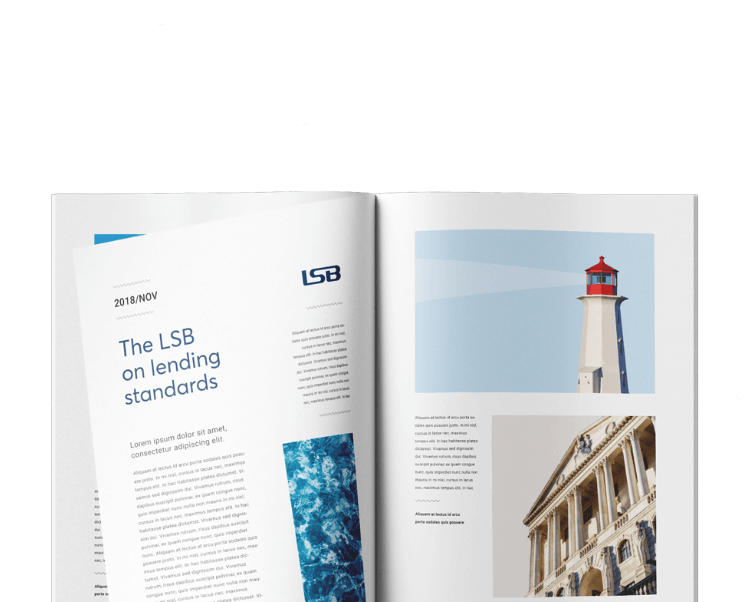Anna Roughley

I’ve spent some years at the LSB, heading up the Insight department with a talented team to disseminate best practice insights to registered banks and lenders, bring new firms on board to raise standards of protections for customers, and to raise awareness of the importance of delivering the right outcomes for all. I’m proud to work for an organisation that champions inclusion and that aligns so closely with my personal passions and values.
In a typically male dominated industry, I’m also honoured to work alongside a strong, female executive team who drive forwards the LSB’s mission. But despite the strides the financial services industry has made in being inclusive, there are still disparities present, and it’s not just for women.
The theme of this years’ International Women’s Day is Inspiring Inclusion, something I, and the LSB, are passionate about, both for women, and also for anyone facing inequality when accessing banking and lending. To that end, we recently launched a series of three inclusion reports looking at how banks and lenders can ensure fair access to their products and services for customer groups who may face specific barriers to finance: d/Deaf customers, ethnic minority business owners, and disabled customers and those with other access needs – many of whom, of course, will be female entrepreneurs and consumers already navigating the gender barriers that can still be found in business and the financial services sector.
Within the reports (which were supported and informed by interviews with experts by experience, consumer organisations, charities, and our work with banks and lenders), we shared the barriers that are commonly faced when accessing finance, and how banks and lenders can work to break down those barriers with simple proactive steps. These include:
- ensuring that the voices of those with lived experience are heard and included from the design of a products or service, through to delivery and feedback;
- the importance of inclusive recruitment – ensuring communications are accessible for all, adverts are representative, and a fair opportunity is offered to all candidates;
- raising awareness amongst staff of the difficulties people may face, how to identify them and provide tailored support and effective signposting;
- having internal ‘champions’ who can represent customer groups or specific access needs; and, amongst other things,
- the importance of setting out success measures before a product or service goes live, in order to ensure you’re meeting your goals and can evidence that you’re providing a fair outcome for your customers.
The insights shared, although tailored to the financial services, are relevant across most sectors, and for all customers. We’ve been delighted to see and hear positive change come about already as a result of the reports, but the work doesn’t stop there. As an organisation, we have and will continue to review and develop our best practice Standards to ensure that banks and lenders have the frameworks and tools needed to design and deliver products that are accessible for all.
International Women’s Day serves not only as a celebration of how far we have come, but also as an important reminder for organisations and individuals to check in on themselves to ensure they are doing all they can to champion inclusion – because there is always more to be done.









